Question And Answer
Publications
Articles, publications, books, tools and multimedia features from the U.S. Institute of Peace provide the latest news, analysis, research findings, practitioner guides and reports, all related to the conflict zones and issues that are at the center of the Institute’s work to prevent and reduce violent conflict.
World Leaders Tackle Global Poverty, Security Issues at United Nations General Assembly
In New York, some 8,500 delegates from 192 countries are meeting at the United Nations this week for the summit on the Millennium Development Goals (MDGs) and the U.N. General Assembly. The big issues on the U.N.’s agenda this year include development, peace and security, conflict prevention, human rights, the environment and climate change, and U.N. reform, among others, said Abiodun Williams, vice president of the Center for Conflict Analysis and Prevention at the United States Institute of...
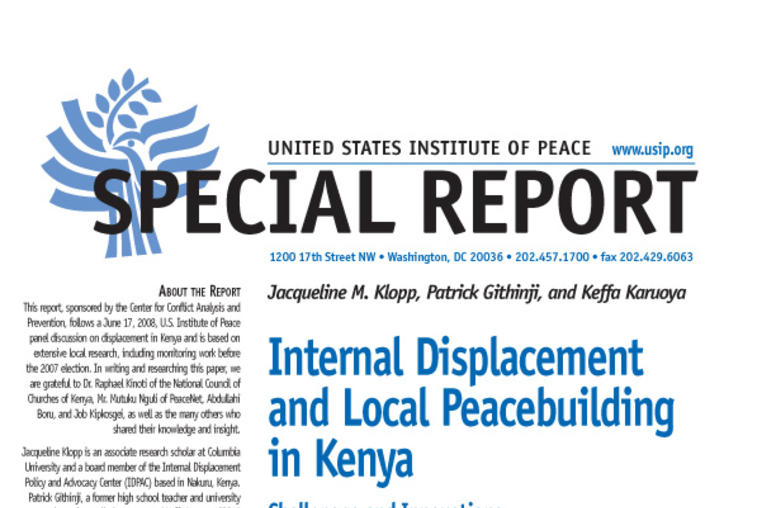
Internal Displacement and Local Peacebuilding in Kenya
Since the election in December 2007, Kenya has witnessed an unprecedented degree of postelection violence that has produced large numbers of victims, including hundreds of thousands of internally displaced persons (IDPs). This persistent insecurity linked to mobilized youth, local impunity, and the failure of the police and legal system makes resettlement and reintegration of the displaced dangerous.
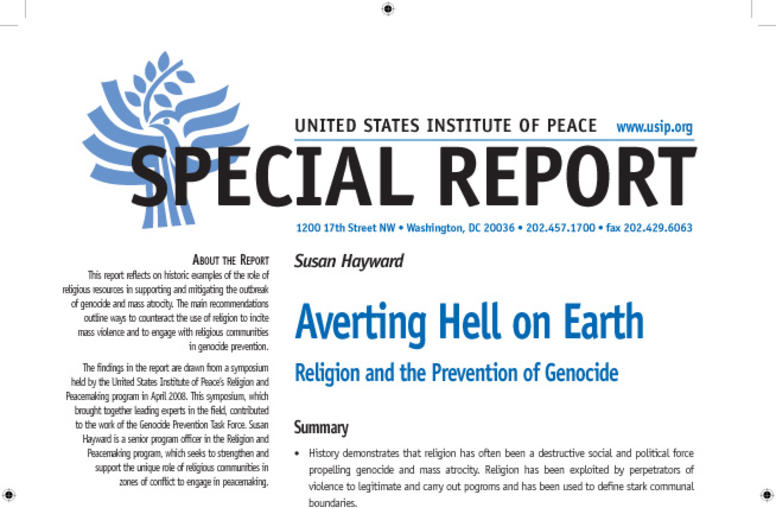
Averting Hell on Earth: Religion and the Prevention of Genocide
This report reflects on historic examples of the role of religious resources in supporting and mitigating the outbreak of genocide and mass atrocity. The main recommendations outline ways to counteract the use of religion to incite mass violence and to engage with religious communities in genocide prevention.
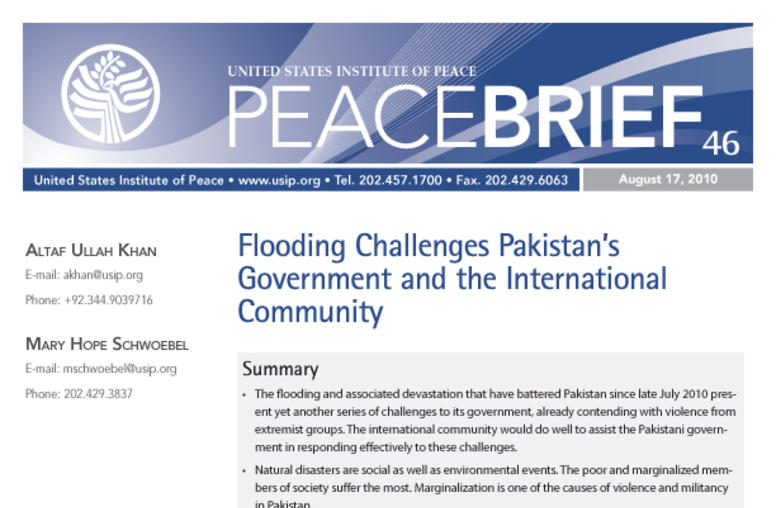
Flooding Challenges Pakistan's Government and the International Community
The flooding and associated devastation that have battered Pakistan since late July 2010 present yet another series of challenges to its government, already contending with violence from extremist groups. The international community would do well to assist the Pakistani government in responding effectively to these challenges.
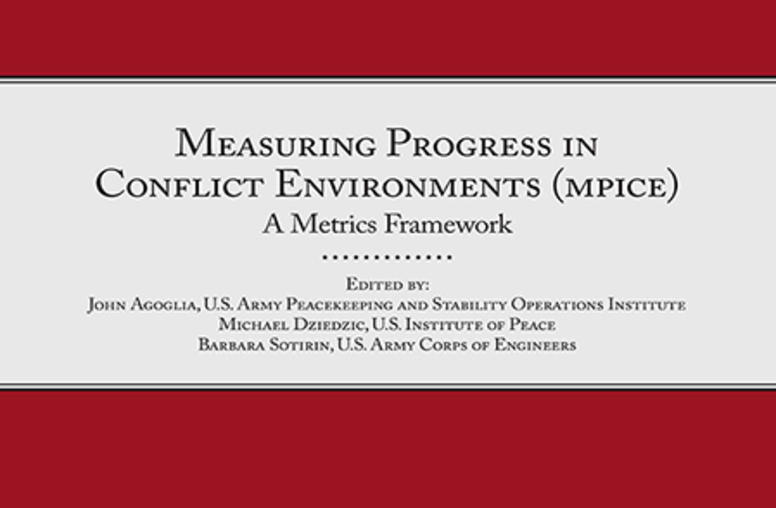
Measuring Progress in Conflict Environments (MPICE)
The primary objective of the Measuring Progress in Conflict Environments (MPICE, pronounced M-Peace) project is to provide a comprehensive capability for measuring progress during stabilization and reconstruction operations for subsequent integrated interagency and intergovernmental use. MPICE enables policymakers to establish a baseline before intervention and track progress toward stability and, ultimately, self-sustaining peace. The intention is to contribute to establishing realistic goal...
Briefing on Human Rights in Afghanistan
Rule of Law Specialist Scott Worden testified on Capitol Hill on March 26, 2009 on the issue of "Human Rights in Afghanistan." A former adviser to the U.N. Assistance Mission in Afghanistan on human rights and elections issues, Worden helped the U.S. Helsinki Commission examine the current state of human rights in Afghanistan.
On the Issues: Human Rights and Peacebuilding
USIP has supported over 300 products, projects, and activities related to human rights and peacebuilding. From grants to fellowships, from training to education, from working groups to publications, the Institute strives to encourage more practice and scholarly work on the issue of human rights, and seeks to deepen understanding of the role human rights play in conflict and in peace.
Nepal: Rule of Law and Human Rights Challenges
This USIPeace Briefing analyzes the security situation in Nepal and the escalation of human rights abuses.
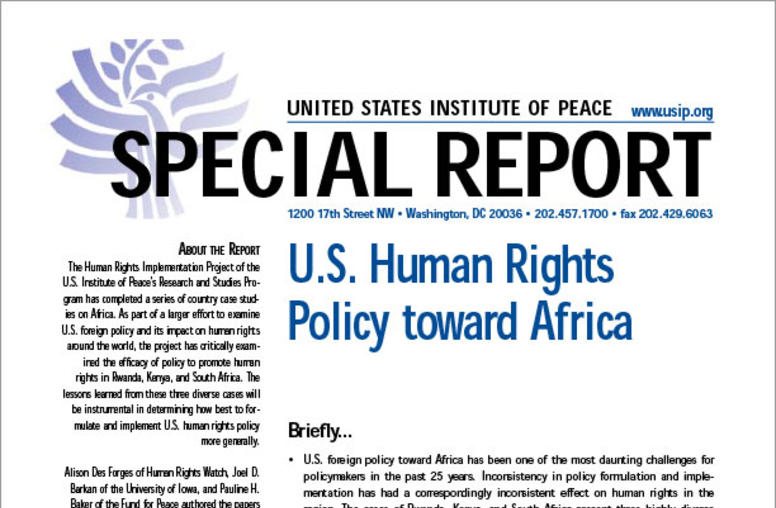
U.S. Human Rights Policy toward Africa
The Human Rights Implementation Project of the U.S. Institute of Peace's Research and Studies Program has completed a series of country case studies on Africa. As part of a larger effort to examine U.S. foreign policy and its impact on human rights around the world, the project has critically examined the efficacy of policy to promote human rights in Rwanda, Kenya, and South Africa. The lessons learned from these three diverse cases will be instrumental in determining how best to formulate an...
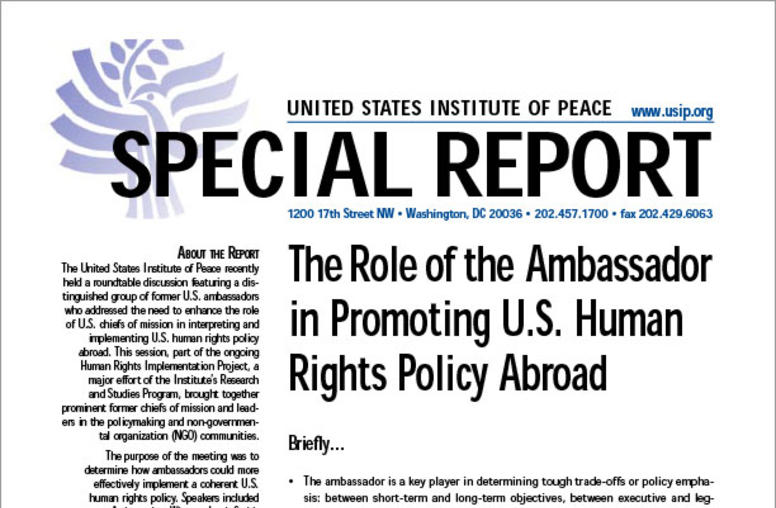
The Role of the Ambassador in Promoting U.S. Human Rights Policy Abroad
Summary The ambassador is a key player in determining tough trade-offs or policy emphasis: between short-term and long-term objectives, between executive and legislative priorities, between strategic interests and specific human rights concerns, between public and private diplomacy, between coercive and cooperative approaches, and between unilateral and multilateral approaches to specific problems.